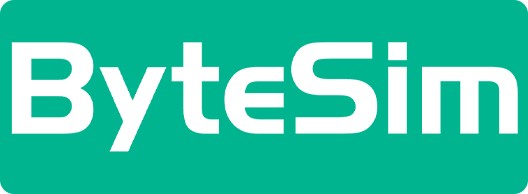What is Message and iMessage?
Sep 28,2023 | Tom
MessageiMessageDifferences between Message and iMessagePlatform CompatibilityCommunication FormatData UsagePros and cons between Message and iMessagePros of MessagesCons of MessagesPros of iMessagesCons of iMessages

Photo business man holding smart phone with letter signs
Nowadays, the mobile phone has already become an essential part of our daily life, and its Message function does a lot of help in our lives and work, such as social-communicating and designating tasks. But do you know the exact differences between Message and iMessage? Maybe they seem alike literally judging from the words, but they serve and operate in a great different way. So, today, let's delve into " What is Message and iMessage?".
Message
Message , also referred to as text messages, is a universal form of communication that can be sent and received across different types of smartphones and operating systems. It allows users to send and receive text-based messages, images, and videos. Text messages are widely used and popular among mobile phone users. They are compatible with various devices and have a high delivery rate. However, they may have limited features compared to more advanced messaging platforms.
iMessage
iMessage is an instant messaging service developed by Apple Inc. It functions exclusively on Apple platforms, including macOS, iOS, iPadOS, and watchOS. iMessage offers enhanced features such as read receipts, typing indicators, group chats, and the ability to send multimedia content like images, videos, and documents. It also provides end-to-end encryption for added security. However, iMessage is limited to Apple devices and cannot be accessed or used with non-Apple devices.
Differences between Message and iMessage

photo use of apps to make friends concept with smartphone
When comparing Messages and iMessage, there are a few differences to consider:
Platform Compatibility
Messages is the default messaging app on non-Apple devices, such as Android smartphones. This service is in the charge of mobile network carriers and is needed to pay for each text/picture/video you send according to the number of words and distance from the sender to the receiver(the fee may be overcharged if it is sent across countries)
While iMessage is exclusive to Apple devices like iPhone, iPad, and Mac. This means that you can only use iMessage to communicate with each other who are using Apple series products
Communication Format
Messages primarily utilize SMS (Short Message Service) and MMS (Multimedia Messaging Service) to send text, photos, videos, and other media files.
On the other hand, iMessage uses the internet( Wi-Fi, mobile data, Hotspots and so on) to send messages, allowing for additional features like read receipts, typing indicators, and the ability to send high-quality photos and videos for free.
Data Usage
Messages typically rely on your cellular plan's SMS and MMS allowances. Sending messages through Messages may incur charges if you exceed these limits, depending on your carrier.
On the other hand, iMessage uses the internet to transmit data, which means that it utilizes your data plan or Wi-Fi connection. When used on Wi-Fi, iMessage doesn't consume cellular data.
Pros and cons between Message and iMessage

As the saying goes, every coin has its two sides, and so does the Message the iMessage function. Here is a list of pros and cons for both Messages and iMessage:
Pros of Messages
-
Compatibility
Text messages can be sent and received across different types of smartphones and operating systems, making them universally accessible.
-
Popularity
Text messaging is a widely used form of communication, with most mobile phone users having the capability to send and receive text messages.
-
Reliability
Text messages typically have a high delivery rate and are less likely to be affected by issues such as poor internet connectivity.
Cons of Messages
-
Limited functionality
Text messages often have basic features and limitations when compared to modern messaging platforms. They typically don't support advanced features such as read receipts, typing indicators, or multimedia content.
-
Cost
Depending on the cellular plan, text messages may incur additional charges, particularly for international or excessive messaging.

photo speech bubbles with businessman working on his tablet
Pros of iMessages
-
Enhanced features
iMessage offers a range of advanced features like read receipts, typing indicators, group chats, the ability to send multimedia content, stickers, and more.
-
Seamless integration
iMessage is exclusive to Apple devices, allowing for seamless integration with other Apple services and platforms.
-
Security
iMessage is encrypted, providing an extra layer of security for users' conversations.
Cons of iMessages
-
Limited compatibility
iMessage can only be sent and received between Apple devices, meaning users with non-Apple devices can't access or participate in iMessage conversations.
-
Dependence on internet connection
iMessage requires an active internet connection, either through Wi-Fi or cellular data, making them inaccessible in areas with poor or no network coverage.
-
Potential data usage
Sending multimedia content via iMessage may consume more data than traditional text messages, which could be a concern for users with limited data plans.
It's important to consider these pros and cons when choosing between Messages and iMessages, depending on your device and communication needs.

Ultimately, the choice between Messages and iMessage depends on your device and the preferences of your contacts. If most of your contacts use Apple devices, iMessage offers a more feature-rich experience. However, if you communicate with a mix of Android and Apple users, Messages is a more universal option.
ByteSIM , a trustworthy eSIM provider for more than 5 million travel lovers and international businessmen all over the world( 200+ Countries/Areas ).



